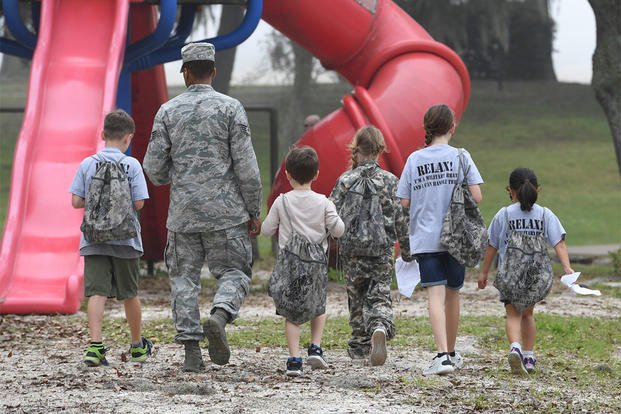A temporary military travel ban put in place to stop the spread of the novel coronavirus only applies to official permanent change of station (PCS) and temporary duty assignment (TDY) travel, according to a Defense Department fact sheet issued late Friday. The ban is set to begin on Monday.
"All DoD service members and civilians, and their family members will stop all official travel -- such as Permanent Change of Station or Temporary Duty -- through May 11," the clarifying fact sheet states.
Troops are also blocked from taking leave outside their local area, it states, with exceptions granted for some emergencies.
"Service members may only take leave in the local area. This is being done to limit the spread of and potential exposure to COVID-19," the fact sheet says. "Exceptions may be given for compelling cases where the travel is: determined to be mission essential; necessary for humanitarian reasons; or warranted due to extreme hardship."
Related: Pentagon Bans Domestic Travel for Troops, Families As Coronavirus Spreads
Commanders have broad authority to grant those exceptions, a Pentagon official said in a reporter briefing Saturday afternoon.
"Each commander is authorized to make those choices. Just as every location has different circumstances on the ground as far as the coronavirus, billeting available, having people stay at home, those decisions are being evaluated," the official said. "[People should] call their supervisor and get informed about what circumstances are best for them. These decisions being made before the coronavirus and take the safety of military personnel to heart."
How does the order impact your upcoming move or leave plans? Here's a rundown, according to the fact sheet.
1. Military family members can still travel. Right now, the Pentagon has ordered a stop to movement for family members on PCS or TDY travel and a restriction blocking troops from taking leave outside their local area. The guidance, however, says nothing about blocking military dependents from other travel, although public health officials have advised against doing so, and restrictions on Americans traveling to overseas locations remain in flux. That means spouses may be able to take scheduled trips, but their service members will likely be blocked from traveling very far.
2. Health-related official travel can still go forward. Military family members and troops are periodically sent by the DoD to hospitals or medical facilities outside their local area. The stop-movement order does not apply to that travel, the fact sheet says. "Travel for medical treatment is still allowed," it states.
3. If you're already traveling for your PCS, you should complete your move. If you're already on the road to your next duty station, keep going. "Those who have already begun their travel may continue on to their final destination," the fact sheet states. "They should still be mindful of the health protection measures like social distancing and handwashing during their travels."
4. All other PCS moves are on hold. If you're slated to move between now and May 11, your orders are now on hold in most circumstances. Just as for leave requests, exceptions will be ordered or granted for moves "determined to be mission essential; necessary for humanitarian reasons; or warranted due to extreme hardship," the fact sheet states. Families with questions are asked to contact their chain of command.
5. If you are homeless due to a pending move, the Pentagon plans to help. Although officials haven't released their specific steps for assisting families who have already sold their homes or ended their leases thanks to a pending move, they did state that they will help. "DoD will use all means available to assist service members who were impacted by COVID-19. Please contact your chain of command for assistance," it states.
6. If your household goods have already been picked-up, you might be able to get them back. Depending on when your household goods were picked up and where they are in the transit process, you may be able to access them, the fact sheet says. "Each situation is different. Individuals will need to contact their shipping office to determine if their household goods are still in the local area and whether or not they may have access to them," it states.
7. If you already shipped your car, you might be able to get it back. If you dropped off your car for shipment to your upcoming overseas assignment, you might be able to retrieve it, the guidance says -- but you need to act now. "If you're interested in retrieving your vehicle, contact the [Vehicle Processing Center] immediately," it says. "VPCs are postured to assist customers with changing appointments, vehicle retrieval and answering any other [personal vehicle]-related questions you have."
-- Amy Bushatz can be reached at amy.bushatz@military.com.
This story was updated at 3:45 p.m. March 14 to include a statement from a Pentagon briefing.














